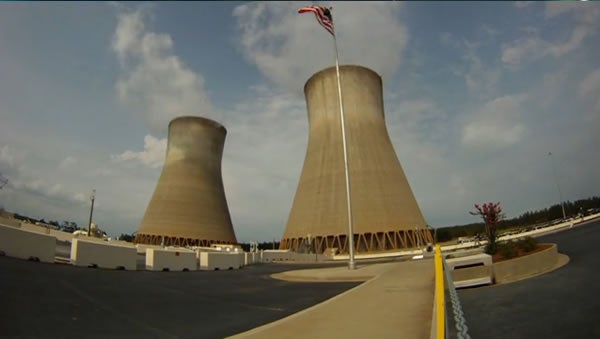Georgia Leader Beats Drum for Nuclear Energy
Jack Spencer / Katie Tubb /
Georgia is riding a wave of new nuclear energy that, five years ago, many thought would be more crowded by now.
Georgia Public Services Commissioner Tim Echols, a champion of using market forces to help solve our nuclear waste problems, has seen firsthand how important getting nuclear energy policy right matters. While Georgia has benefited from the hundreds of jobs created by constructing and operating commercial nuclear plants and the affordable baseload energy they supply, his travels to Germany have showed how rising energy prices—due, at least partially, to moving away from nuclear energy—are pushing major companies away.
In the wake of the 2011 Fukushima accident in Japan, the German government put the country on track to eliminate nuclear energy and replace it with more expensive and heavily subsidized renewable projects. This has meant higher electricity prices and fewer jobs. Several large companies have relocated or opened new factories in America, where electricity prices have been much more attractive for business.
The United States is far from the situation in Germany. But if America is going to get nuclear right, some basic things about how the government regulates the industry needs to change, starting first with how nuclear waste is managed:
- Restart and reform Yucca. The Administration should immediately restart the Nuclear Regulatory Commission’s review of the Yucca Mountain permit. If the commission approves the permit, the permit should be transferred to a Nevada-based entity that can then negotiate directly with the nuclear industry on what, if anything, to do to move the project forward.
- Institute market-based nuclear waste management reform. The U.S. needs a market-based nuclear energy policy. This begins with a nuclear waste policy that gives utilities and other waste producers the primary responsibility for waste management and a system for financing nuclear waste disposal that allows waste producers to directly pay for nuclear-waste-related services.
- Develop a rational, flexible, and predictable regulatory regime. The nation needs a regulator that can issue permits for new plants on a predictable basis at a reasonable cost and is capable of regulating multiple types of reactors and other industrial facilities, such as used fuel treatment plants.
So long as the federal government proves to be a barrier for nuclear waste management, growth and innovation in the nuclear industry will be stunted. In order for states such as Georgia to keep benefiting from nuclear energy (and the jobs and inexpensive energy that come with it), the federal government needs to get its act together.

